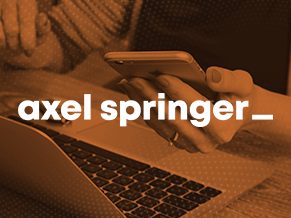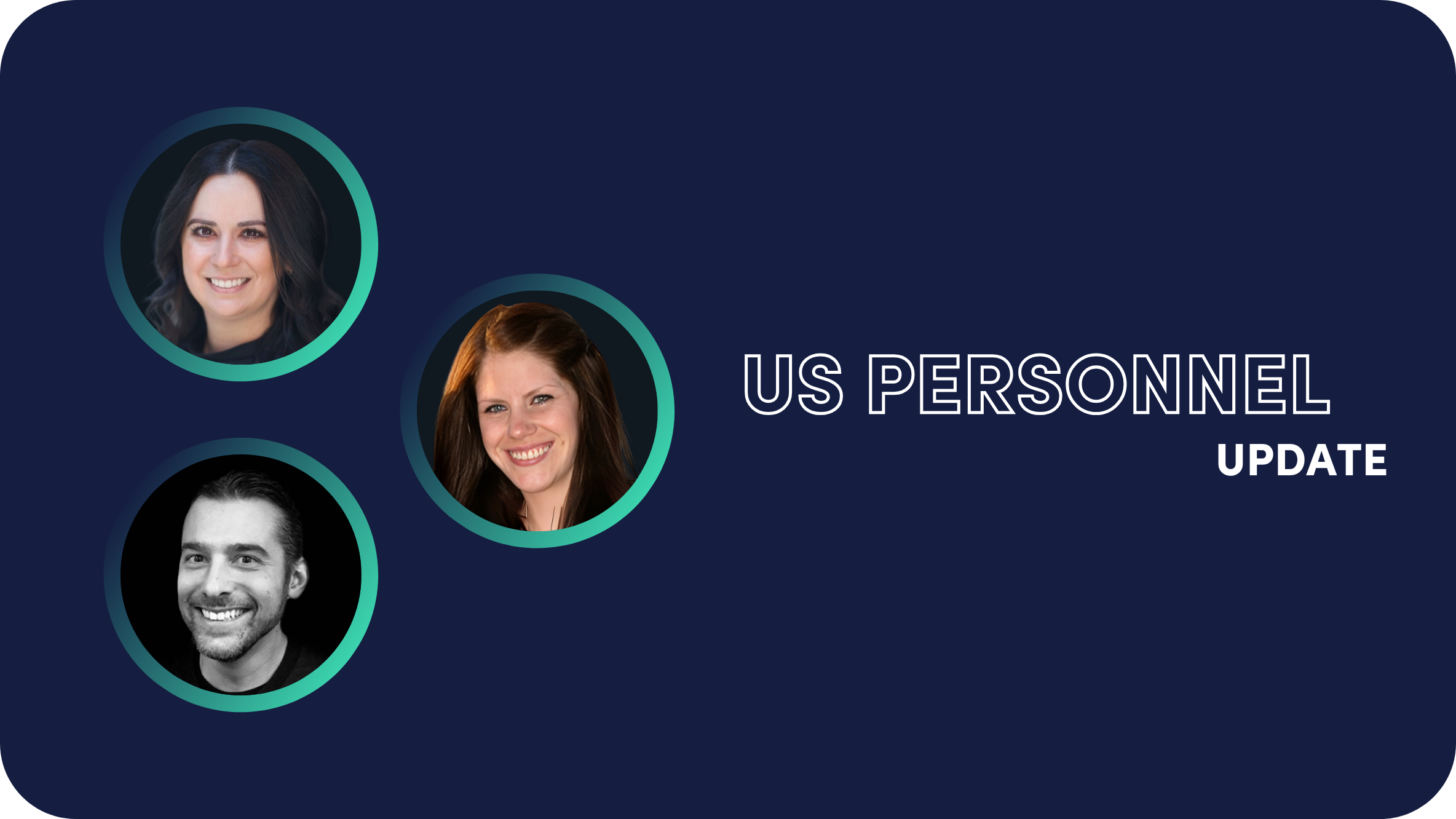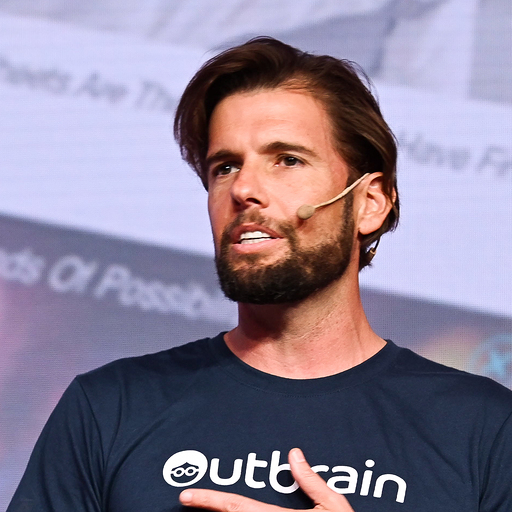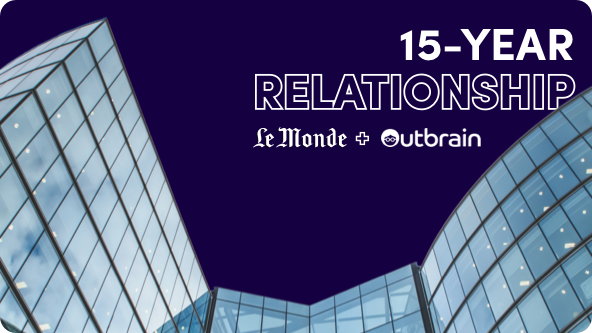In the News: Axel Springer Announces Global Cooperation with Outbrain
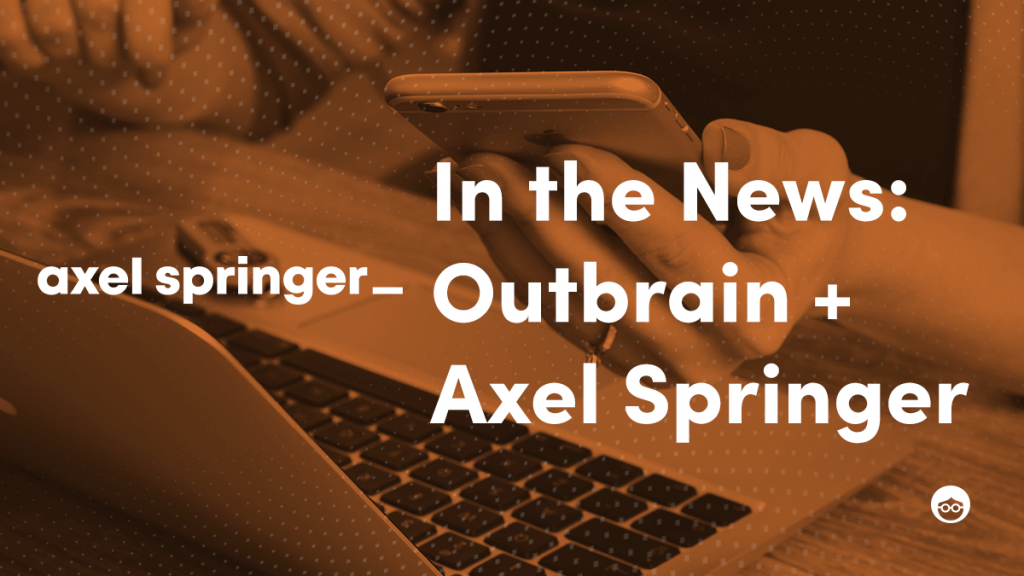
This article is a translation of an interview originally published on Horizont.net (author: Jürgen Scharrer)
On the offense in native advertising: Axel Springer is entering a strategic partnership with the recommendation platform Outbrain and believes in “a true renaissance of classic environment placement or contextual targeting in digital marketing.” HORIZONT Online spoke with the two managers in charge: Peter Würtenberger, Executive Vice President Axel Springer, and Alexander Erlmeier, Managing Director International at Outbrain.
Mr. Erlmeier, Outbrain has many cooperations with publishers in Germany – what is special about the deal with Axel Springer?
Alexander Erlmeier: What’s special is that this is a truly global partnership that also includes the USA and Spain, among other countries. That opens up completely different strategic perspectives. In Germany, we now achieve a unique reach of 92 percent with Axel Springer’s titles. 18 of the 25 leading publishers according to Agof are working with us.
Mr. Würtenberger, Axel Springer has so far relied primarily on Taboola for native advertising. Why the decision for Outbrain now?
Peter Würtenberger: We have indeed worked very well with Taboola and will continue the cooperation with Business Insider in the USA. However, Outbrain convinced us the most during our evaluation process. We agreed on a cooperation for three years with an option for a further three years. That shows that this is not about the short-term integration of an advertising partner, but about a long-term partnership. Today, Axel Springer is active in 40 markets and now also plays an important role internationally with Politico and Business Insider. This global presence is what makes strategic partnerships of this dimension possible in the first place, such as the ones we have with Facebook and now also Outbrain. This is also the reason why we established the Global Strategic Partnership division at Axel Springer in August 2021.
What does the deal with Outbrain mean for Germany in concrete terms?
Würtenberger: We are primarily interested in an even better user experience. We provide users with personalized article recommendations and native ads. Outbrain offers a variety of formats and tools for this purpose, which we want to use in a standardized way for all our brands. This applies to the journalistic digital offerings of the Bild and Welt Groups, but also to titles such as BZ, Rolling Stone, Musikexpress and Metal Hammer.
Erlmeier: Since Outbrain was founded in 2006, the focus has not only been on monetization, but also on user engagement. We always have the magic triangle in mind: Reader, Publisher, Advertiser. We want to create a win-win-win situation here. What few people know is that 60 percent of the clicks we generate refer to internal article recommendations and therefore remain within the publisher.
Würtenberger: Alongside advertising, subscriptions are the second important pillar of our business. Here, too, Outbrain can help us with its tools.
Let’s stay with the advertising business for a while. After the foreseeable end of third-party cookies, is contextual targeting the next big thing – or does personalized user targeting remain the silver bullet?
Erlmeier: In all environments and platforms where we have a necessary consent signal and it is technically possible, we will also use our interest-based targeting. However, I am sure that we will see a lot more contextuality again, because with the end of third-party cookies, advertising can no longer be served in a personalized way as well as before. Contextual targeting is not uncharted territory for us; on the contrary, our platform has also been relying on suitable environments for advertising messages for 15 years with our Amplify and Engage products. But the two strategies are not mutually exclusive. I like to talk about a “new contextuality” here, because data and algorithms are playing an increasingly important role in environment planning. Contextual targeting is also very much technology-driven today. The development effort required to always be on the cutting edge is enormous. As a global company, we naturally have the advantage of being able to invest in new technologies accordingly.
Würtenberger: The pushback against third-party cookies and stricter privacy regulations open up great opportunities for publishers. I am convinced that the classic environment placement or contextual targeting will experience a real renaissance in digital marketing! As publishers, we should play to our strengths – offering high-quality and brand-safe content – much more than we have in the past.
Will native advertising become more important in the foreseeable future?
Würtenberger: The core of our media business is premium marketing via Media Impact – and this will not change. Native advertising is becoming more important because we now have much more space available for it than we did a few years ago. Our global positioning opens up many new options for us, and that also applies to native advertising. But it’s not as if we’re going to increase the share of native ads in our article recommendations now.
How do you see the market, Mr. Erlmeier? And what role can Outbrain play here?
Erlmeier: We increased our revenue by 30 percent last year and continue to see very high growth potential for native advertising.
It looks like almost all of the growth in digital ad spending is coming from U.S. platforms.
Erlmeier: To be honest, I can’t understand why advertisers are shifting so much money to walled gardens, even though they don’t reach many people there at all – and I don’t even want to talk about the quality of the environment here. I think one of the key points will be that we’re very consistent on technological power and proving that Outbrain campaigns simply work better than ads on social media, for example, when it comes to leads or conversion rate. We see ourselves as a partner to publishers and have now distributed three billion dollars to publishers. Native advertising makes an important contribution to funding media diversity and journalism – and that’s more important than ever given the political developments in today’s world.
Finally, a word on a topic that is on everyone’s mind, the war in Ukraine. How dramatic will the consequences be for the advertising industry?
Würtenberger: I’m afraid that our industry is facing major challenges. When I hear from industry partners how entire supply chains are threatening to break away, you get an idea of how precarious the economic situation is. The advertising industry will not be spared from this either.
